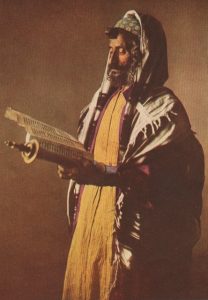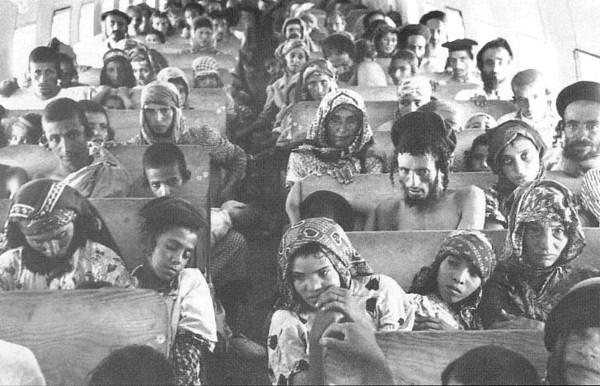Eli Newman – Detroit – The Yemeni Anmerican news

While growing up in metro Detroit’s Jewish community, Ashley Attar knew her background made her different than the rest of her peers. “You have your Arab identity and your Jewish identity. There are these two worlds that are conflicting all the time.” Attar’s father was the product of Yemeni Jews who came to Israel in the late 1940s. According to the Jewish Virtual Library, there were more than 55,000 Jews living in Yemen in 1948, but the Jewish community can trace its history back thousands of years in Yemen. Following the establishment of the Zionistic country, Israel sponsored a mass migration movement through “Operation Magic Carpet,” where 48,000 Yemeni Jews were airlifted out of Aden to become citizens in Israel. The operation was both a means to increase the population of the Jewish state and a way for Yemeni Jews to escape anti-Semitic violence following the United Nations Partition Plan for Palestine. It was on “Operation Magic Carpet” that Attar’s grandparents came to live in Israel. “They didn’t even have shoes on their feet,” she said.
After living in Israel as part of the Yemeni community in Petah Tikva, Attar’s father came to Michigan with his family, where he worked as a public school teacher. The Attar family joined the larger Jewish community in metro Detroit, enrolling their children in Jewish day schools and summer camps. Considering her family’s distinct heritage, Attar felt different than the other Jewish families she grew up with. “All of the things that made me stand apart, what made my father stand apart from his peers that came over from Eastern Europe, were things that were Arabic traits,” Attar said. “His dark skin color or his accent when he spoke Hebrew.”
According to a 2010 study carried out by Jewish Federation of North America, there are at least 67,000 Jews living in metro Detroit, though there are some estimates that bring the population closer to 110,000. The bulk of Jews who established themselves in metro Detroit over the years would consider themselves Ashkenazi, a term referring to Jewish people of Eastern European descent who practice similar customs and rituals.
Metro Detroit does have a small community of Jews from Middle Eastern countries, often referred to as Sephardic or Mizrahi (Eastern) Jews, as evident by the Sephardic Keter Torah Synagogue in West Bloomfield Township, but looking for Yemeni Jews in Detroit is finding a minority within a minority. Barry Stiefel, the author of “The Jewish Community of Metro Detroit: 1945-2005,” said there is not a larger network of Yemeni Jews. “Other than individuals, I am not aware of there being a Yemeni-American Jewish ‘community’ within the Detroit area,” Stiefel said.
Though Mizrahi and Sephardic Jews came from many different countries in the Middle East, Yemen has a distinct connection to the Jewish people. Given their longstanding history in the country, Yemeni Jews developed unique traditions, which include Arabic melodies and words in their prayers and songs and distinct cuisines such as jachnun, a flakey bread eaten on Sabbath mornings. Ashley Attar said Yemeni Jews have a very ornate wedding tradition “Before they get married they would have a hina,” Attar said. “You put henna [ink] on the women’s palms and fingertips and it’s a ceremony. It’s something the whole family comes to, but it’s something I don’t see at other Jewish weddings.” The ceremony also includes expressive and colorful wedding attire.
Following “Operation Magic Carpet,” the majority of the remaining Yemeni Jews came over to Israel through various other emigration efforts. In recent history, the Jewish community of Yemen has been reduced to roughly 50 people. For Attar, the status of Yemeni Jews shows that intolerance exists in many forms. “There’s a lot of focus that’s put on the injustices in Palestine, as there should be,” Attar said. “At the same time, people pay very little attention to what’s going on to the Jewish communities that are outside of Israel, in other neighboring Arab countries like Yemen.” Still, Attar is happy to call herself a Yemeni Jew. “It’s an identity that I am very proud of. I wish I felt more connected to it. Sometimes the distance makes me feel so far away from it.”












